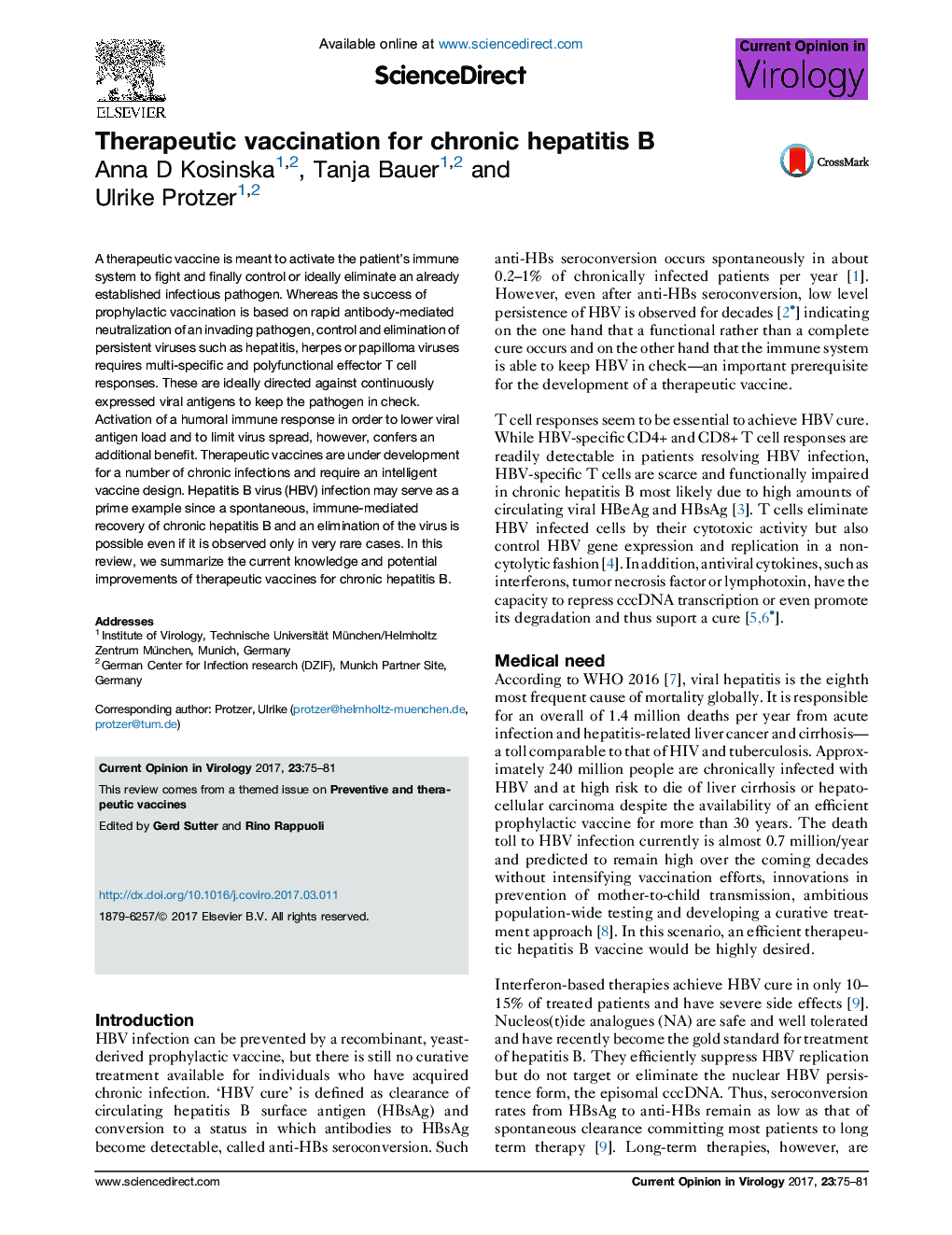| Article ID | Journal | Published Year | Pages | File Type |
|---|---|---|---|---|
| 5546143 | Current Opinion in Virology | 2017 | 7 Pages |
Abstract
A therapeutic vaccine is meant to activate the patient's immune system to fight and finally control or ideally eliminate an already established infectious pathogen. Whereas the success of prophylactic vaccination is based on rapid antibody-mediated neutralization of an invading pathogen, control and elimination of persistent viruses such as hepatitis, herpes or papilloma viruses requires multi-specific and polyfunctional effector T cell responses. These are ideally directed against continuously expressed viral antigens to keep the pathogen in check. Activation of a humoral immune response in order to lower viral antigen load and to limit virus spread, however, confers an additional benefit. Therapeutic vaccines are under development for a number of chronic infections and require an intelligent vaccine design. Hepatitis B virus (HBV) infection may serve as a prime example since a spontaneous, immune-mediated recovery of chronic hepatitis B and an elimination of the virus is possible even if it is observed only in very rare cases. In this review, we summarize the current knowledge and potential improvements of therapeutic vaccines for chronic hepatitis B.
Related Topics
Life Sciences
Immunology and Microbiology
Virology
Authors
Anna D. Kosinska, Tanja Bauer, Ulrike Protzer,
